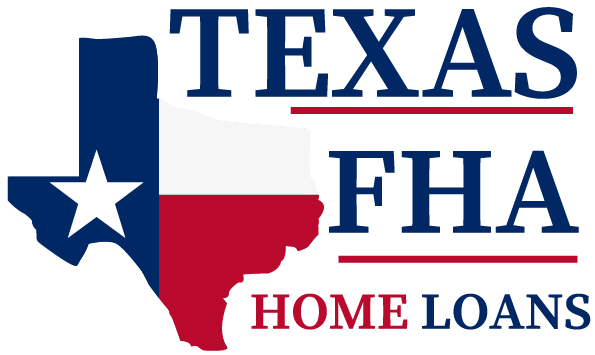You’re getting ready to sell your home and move on to the next chapter of your life. Whether you’re starting a new job or moving closer to your family, you need to take out a loan to cover your next house purchase.
Flipping through inspector listings may make you wonder what the difference is between a Federal Housing Administration (FHA) home inspection and a conventional inspection. Look no further than this guide to find all the answers you need.
Getting the correct home inspection is a crucial part of qualifying for a loan. There are many different types of loans with specific requirements, including which type of inspection people must pass to qualify.
Here are a few main differences between FHA and conventional inspections so you know exactly which one you need to move forward in your home buying process.
What Is an FHA Home Inspection?
Congress created the FHA so all Americans had equal access to housing. Even though there have been many updates to the agency since its creation, FHA home inspections are still a requirement for people to become homeowners.
Any property that passes the inspection paid for by the potential buyers means the house meets FHA standards set by the agency’s guidelines.
What Do FHA Inspections Look For?
There are three things that home inspectors look for regarding FHA standards — sanitation, structural soundness, and the property’s safety. Their minimum property standards ensure buyers move into a house that will last decades.
It’s also a guide for people who apply for these loans, who are typically people without perfect credit scores or who can’t save a 20% down payment. They will most likely be first-time buyers and may otherwise not know what to look for in a house.
FHA inspectors look for updated sanitary standards such as:
- Functional water heaters.
- Safe sewage disposal system.
- Operational household appliances.
Without these things and other requirements, people couldn’t live in a house that supports their well-being. Additionally, a home must be structurally sound and finished, so in-progress properties do not qualify.
What Will Not Pass an FHA Inspection?
Many features that fail FHA inspections are apparent to spot and easy to fix. An inspector will fail a house if dampness or termite damage could compromise the foundation. The roofing should keep all moisture out, and there should be no potential health hazards like asbestos.
The home’s location also can’t be near hazardous waste sites or sources of excessive noise. The first will harm the homebuyer’s health, and the other will prevent them from obtaining a comfortable living space.
Any house that fails an FHA inspection can repair what’s necessary before their next inspection. A door that won’t stay latched is a safety concern, so the inspector will flag it. The current owners can readjust the strike plate and check the door frame to ensure a better fit. When the door works, the potential buyer may qualify for a loan if the rest of the property passes inspection.
What Is a Conventional Inspection?
Conventional inspections are slightly different. Most lenders don’t require them for a loan because they happen after someone puts an offer down on a house. Instead, the inspection is something the buyer requests and often pays for out-of-pocket after negotiations begin.
Depending on the situation, the buyer may get the inspection’s cost included in the property’s price, but that’s not often the case.
What Do Conventional Loan Inspectors Look For?
When paying for a conventional loan, buyers will get slightly different services than with an FHA inspection. The conventional process checks a house to ensure it’s move-in ready. The inspector will take a look at significant components, like:
- HVAC units.
- Foundations.
- Furnaces.
The hope is that they’ll catch any major issues that require immediate attention. It’s a noninvasive examination that will identify the most significant concerns, but not every tiny defect.
Major problems can then become a bargaining tool so the buyer can save money they might put towards the repairs after moving in.
What Will Fail a Conventional Inspection?
It’s challenging to define the biggest home concerns if you’re unsure what will fail a conventional inspection.
Generally, inspectors look at significant features and other things like appliances, home features like garages, plumbing, and electrical systems. Failures could include issues regarding:
- Inoperable service cables.
- Broken thermostats.
- Unstable cabinets.
Anything that keeps buyers from safely living inside and enjoying their new home will fail the inspection and prevent the sale from going forward. The current owners should repair any noted issues before signing any finalizing paperwork.
What Do Buyers Need Besides Conventional Inspections?
An FHA inspection combs through the property for big and small safety and sanitation problems. Conventional inspections aren’t as broad. You’ll also need to pay for things like pest inspections, airborne hazard checks, and landscaping reviews.
If you have a preferred home inspector, they may offer these services for an additional fee. You could also have to find independent contractors to complete any other inspections. It depends on where you live and what professionals cover in your area.
How Much Does Each Inspection Cost?
Many people believe an FHA inspection is much more economical than its conventional counterpart. Government loans are primarily for people with lower incomes or credit scores, but inspections vary only slightly in cost.
Both options can range from $279-$399, but the total cost depends on various factors. Budget-friendly inspections mainly occur in smaller homes. Larger homes and properties with numerous issues are more likely to be increasingly expensive.
Buyers will also pay over the $500 average for a conventional inspection if they need to cover extra inspections for pests, mold, and other concerns. City and location will play additional roles in the final cost for passing a home inspection.
Get the Right Inspection for Your Future Home
Learning the difference between an FHA home inspection and a conventional inspection could save you time and money.
So consider what kind of loan you need to move into your next house. You’ll match your financial goals with the inspection that supports them, resulting in a home that’s move-in-ready without surprise renovation costs or health concerns.
by: Rose Morrison
Rose is the managing editor of Renovated and a real estate industry writer.

